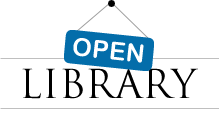
There are a number of sites on the Internet that include freely available electronic books that may be downloaded with little or no restriction. These books are generally older books that have passed out of copyright and into the "public domain."


The Internet Archive has a large collection of digitized versions of print books.
Collections of interest:
Google Books is an ambitious project to scan every book ever published. Google has partnered with a number of research libraries to scan their books. Many of the books Google has scanned are still in copyright, so Google only presents "snippets" of the book that match search results. Books that have passed into the public domain are shown in full, and can be freely read and downloaded. Some publishers have partnered with Google to display more extended snippets and purchasing options for their books.
Google may display a link when you click a book that is in "snippet" view to "Get this book in print." Then, you should see a "Find in a library" link which will take you to WorldCat. If you are on the AMBS campus, you will be prompted to use AMBS WorldCat so that you can see the AMBS call number or request a copy on interlibrary loan.
Project Gutenberg is one of the oldest e-book sites on the Internet. It includes over 45,000 e-books that are freely downloadable in a variety of formats.
Princeton Theological Seminary Library created the Theological Commons to enhance discovery of theological content in Internet Archive. The search of Theological Commons is much more user-friendly than Internet Archive. Searches may return more relevant results because Theological Commons searches both the full text of the documents and enhanced metadata.